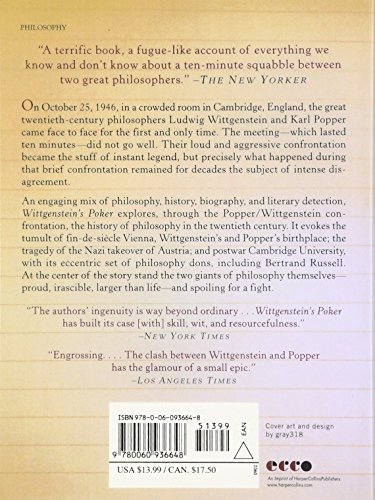Tractatus Logico-Philosophicus - Bilingual Edition
Category: ludwig wittgenstein

The Tractatus Logico-Philosophicus, a work published by the Austrian philosopher Ludwig Wittgenstein during his lifetime, is a comprehensive philosophical treatise. Its ambitious goal was to establish the relationship between language and reality, as well as to delineate the boundaries of science.
Wittgenstein's work, written in Latin and titled "Logical-Philosophical Treatise," is the only book-length philosophical publication he released in his lifetime. The Tractatus Logico-Philosophicus, as it is commonly known, delves into the intricate connections between language, the world, and the limits of human understanding.
Throughout the work, Wittgenstein strives to tackle the fundamental question of how language represents and corresponds to reality. He explores the nature of propositions, their logical structure, and the ways in which they can accurately or inaccurately depict the world around us. By doing so, he aims to define the scope and limitations of scientific inquiry, establishing the boundaries within which knowledge can be reliably obtained and expressed.
The Tractatus Logico-Philosophicus is a highly influential and seminal work in the history of philosophy, particularly in the realms of logic, language, and the philosophy of mind. Wittgenstein's innovative approach to these complex topics has had a profound impact on subsequent philosophical discourse, shaping the way scholars and thinkers grapple with the relationship between thought, language, and the nature of reality.
Wittgenstein's work is renowned for its concise and aphoristic style, with each proposition building upon the previous ones in a systematic and logical manner. The Tractatus Logico-Philosophicus is organized into a series of numbered propositions, each of which presents a distinct idea or insight into the nature of language, logic, and the world.
One of the central tenets of Wittgenstein's work is the idea that language is a mirroring of the logical structure of the world. He believed that the limits of language are the limits of our understanding, and that by analyzing the structure of language, we can gain insights into the underlying structure of reality. This notion has had a lasting influence on the philosophy of language and the study of semantics.
Moreover, the Tractatus Logico-Philosophicus is notable for its exploration of the notion of the "picture theory of meaning," which suggests that the meaning of a proposition is determined by its ability to accurately represent a state of affairs in the world. Wittgenstein's examination of this theory has been pivotal in the development of the philosophy of language and the study of linguistic meaning.
In conclusion, the Tractatus Logico-Philosophicus stands as a seminal work in the history of philosophy, showcasing Wittgenstein's profound and innovative insights into the complex relationship between language, logic, and the nature of reality. Its enduring influence continues to shape the way scholars and thinkers approach the fundamental questions of human understanding and the limits of scientific inquiry.
product information:
| Attribute | Value | ||||
|---|---|---|---|---|---|
| publisher | Mariana de Lacerda Oliveira; 1st edition (February 8, 2013) | ||||
| publication_date | February 8, 2013 | ||||
| language | English | ||||
| file_size | 1500 KB | ||||
| text_to_speech | Enabled | ||||
| screen_reader | Supported | ||||
| enhanced_typesetting | Enabled | ||||
| x_ray | Not Enabled | ||||
| word_wise | Not Enabled | ||||
| sticky_notes | On Kindle Scribe | ||||
| print_length | 110 pages | ||||
| best_sellers_rank | #908,980 in Kindle Store (See Top 100 in Kindle Store) #286 in Logic & Language Philosophy #983 in Philosophy of Logic & Language | ||||
| customer_reviews |
|


















